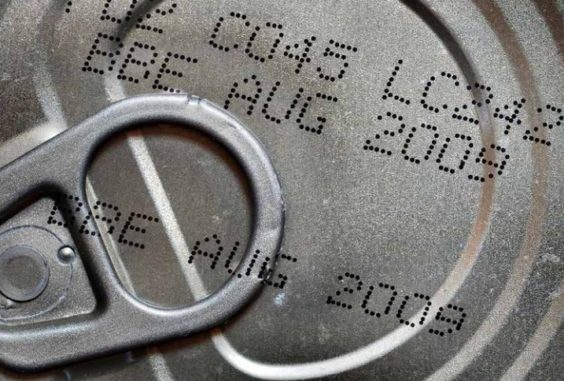
When in doubt, throw it out. Or, the grocery industry could try eliminating the doubt and preventing you from throwing away perfectly good food – before the government forces them to.
Two grocery industry groups are pushing a new voluntary standard that would streamline the system of stamping expiration dates on food products. If food companies get on board, then as early as next year you could see most of your groceries stamped with “use by” or “best if used by” dates, with no other variations.
“Currently, more than 10 different date labels on packages – such as Sell By, Use By, Expires On, Best Before, Better if Used By or Best By – can result in confused consumers discarding a safe or usable product after the date on the package,” the Food Marketing Institute and Grocery Manufacturers Association said in a joint statement.
So they’re proposing to narrow it down to just two standard phrases. “Use by” will apply to perishable products that really do go bad after a certain date. “Best if used by” will apply to just about everything else – the product may not be at peak quality after the printed date, but it’s still safe to eat.
“Our product code dating initiative is the latest example of how retailers and manufacturers are stepping up to help consumers and to reduce food waste,” GMA CEO Pamela Bailey said in a statement.
How noble of them – and how timely, since federal lawmakers have been seeking to force them to do just that.
Last May, Democratic U.S. Senator Richard Blumenthal of Connecticut and Democratic Congresswoman Chellie Pingree of Maine introduced legislation to create a uniform national date labeling system. That bill didn’t get out of committee in the last Congress, so Pingree says she plans to reintroduce it in the new Congress.
“I appreciate the work of the Grocery Manufacturers Association and the Food Marketing Institute,” Pingree said in reaction to the release of their new voluntary standard. “But the only way to fully resolve inconsistent state date labeling laws across the country is to set a national uniform system for date labeling.”
Industry players appear divided about whether to go with a voluntary standard or push for federal regulation. Food manufacturers like Nestlé and Campbell’s spoke out in favor of the Congressional bill when it was introduced. “We fully support establishing federal standards to help food companies like Nestlé more clearly communicate with consumers and avoid confusion that leads to unnecessary food waste,” Nestlé USA CEO Paul Grimwood said at the time.
But the FMI and GMA have several retailers on their side. “This voluntary industry initiative provides shoppers with clear, easily understood date label information, so our customers can be confident in the product’s quality and safety,” said Joe Colalillo, CEO of ShopRite parent company Wakefern Food Corp. “We’re delighted with this industry-wide, collaborative initiative that will provide consistency, simplify consumers’ lives, and reduce food waste in homes across America,” added Frank Yiannas, Vice President of Food Safety & Health for Walmart.
So who do you trust to get it right – the government, or the industry that has allowed this confusing situation to fester until the government started making noises about regulating it?
The FMI and GMA are encouraging retailers and manufacturers to begin phasing in the new wording as soon as possible, with widespread adoption eyed by the summer of next year.
That’s assuming the federal government doesn’t end up passing a new law by then. That could create a messy situation in which current date stamps replaced by language proposed by the FMI and GMA, will have to be replaced yet again with new wording mandated by the government.
So watch your groceries’ expiration dates closely over the next year or so. With more and more groups aiming to eliminate confusion, those date stamps could get a whole lot more confusing before they get any clearer.
Image source: Harvard Food Law and Policy Clinic










